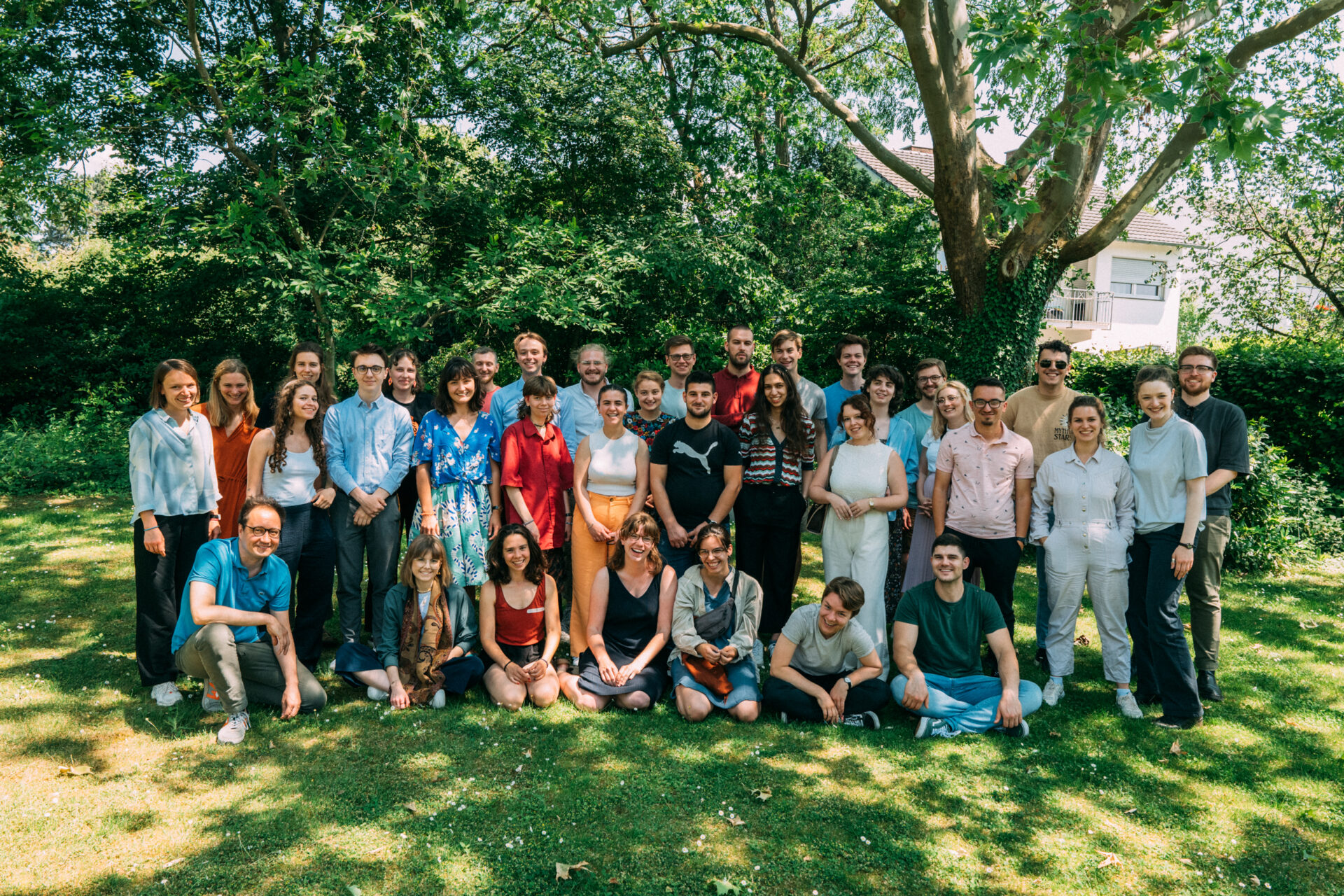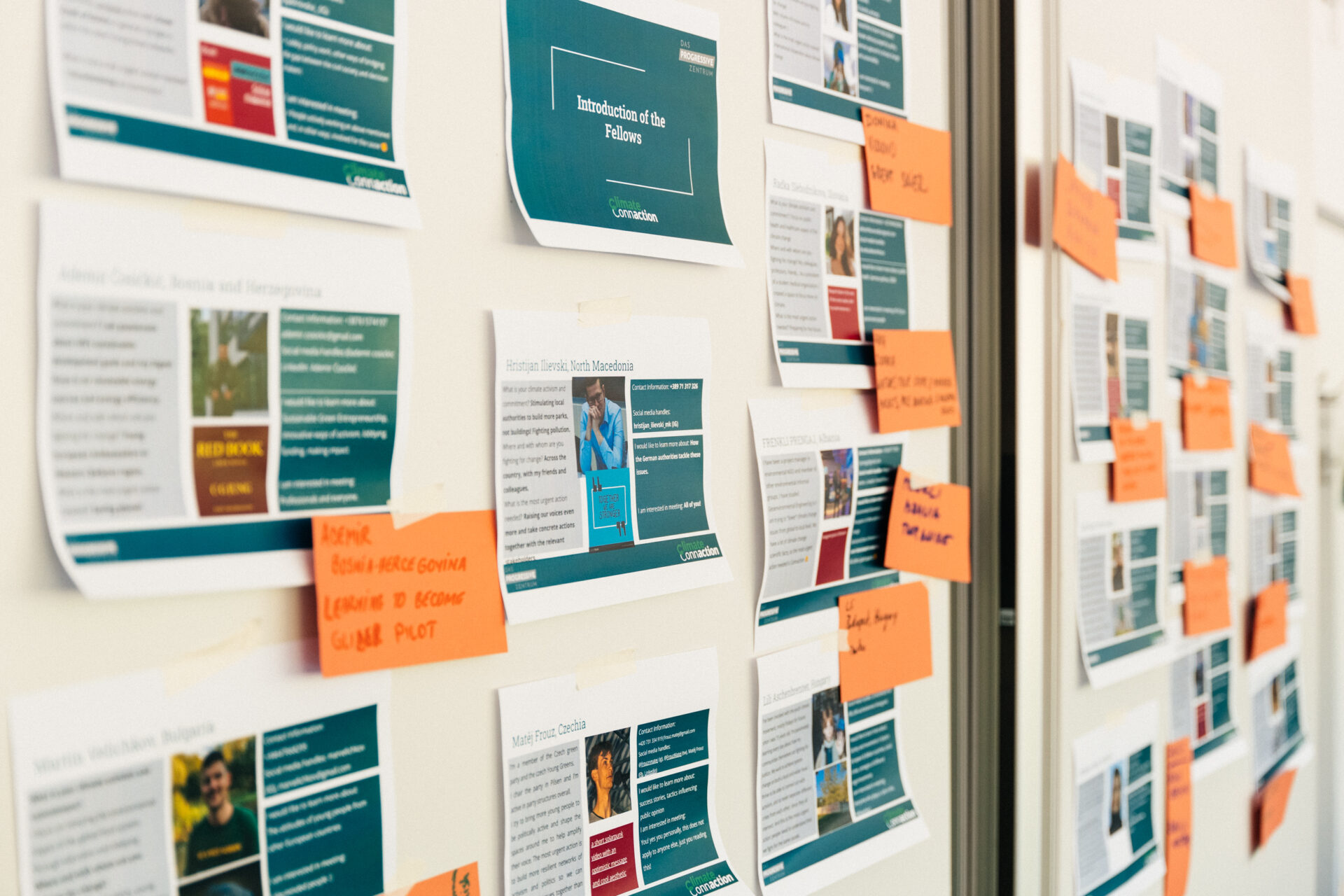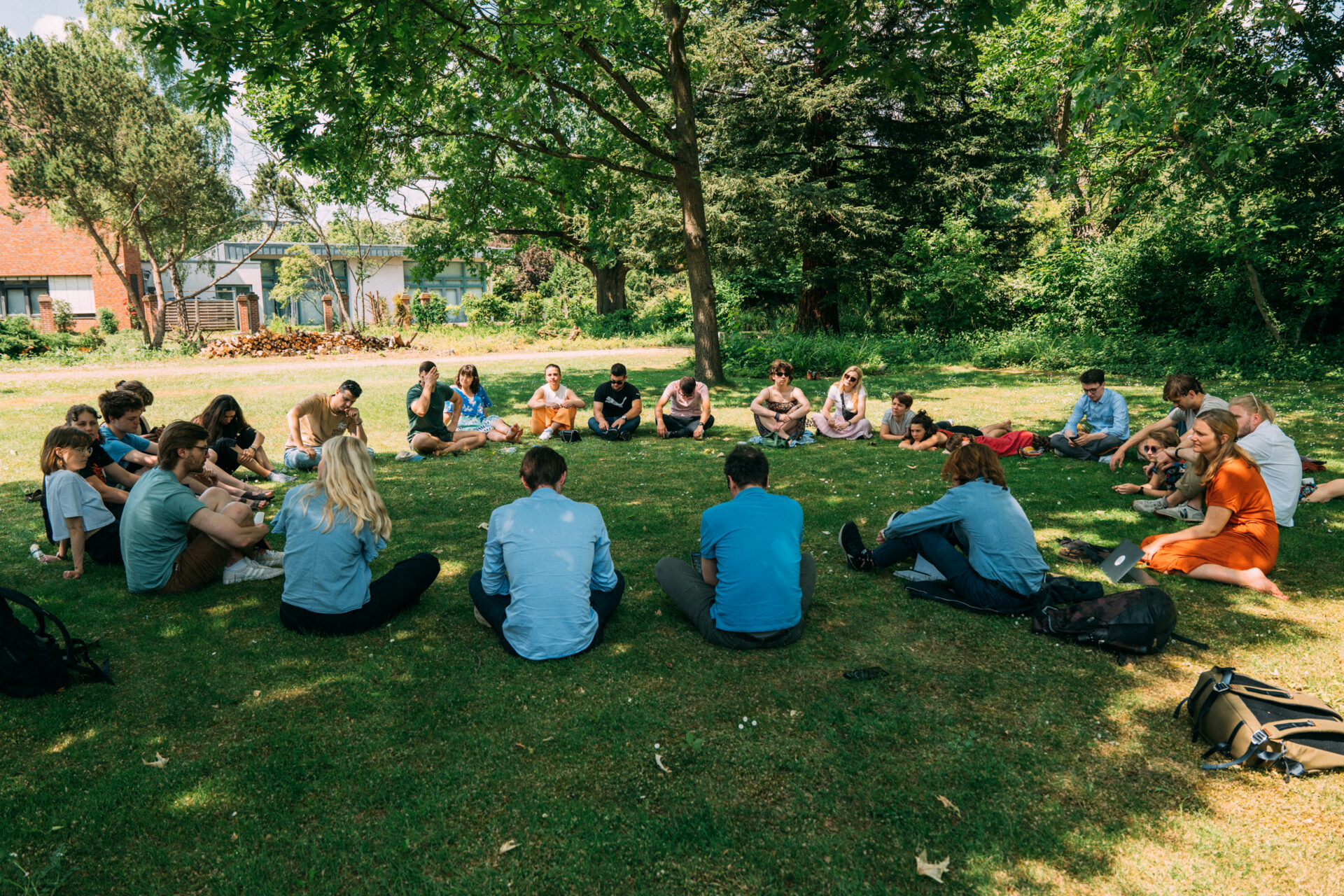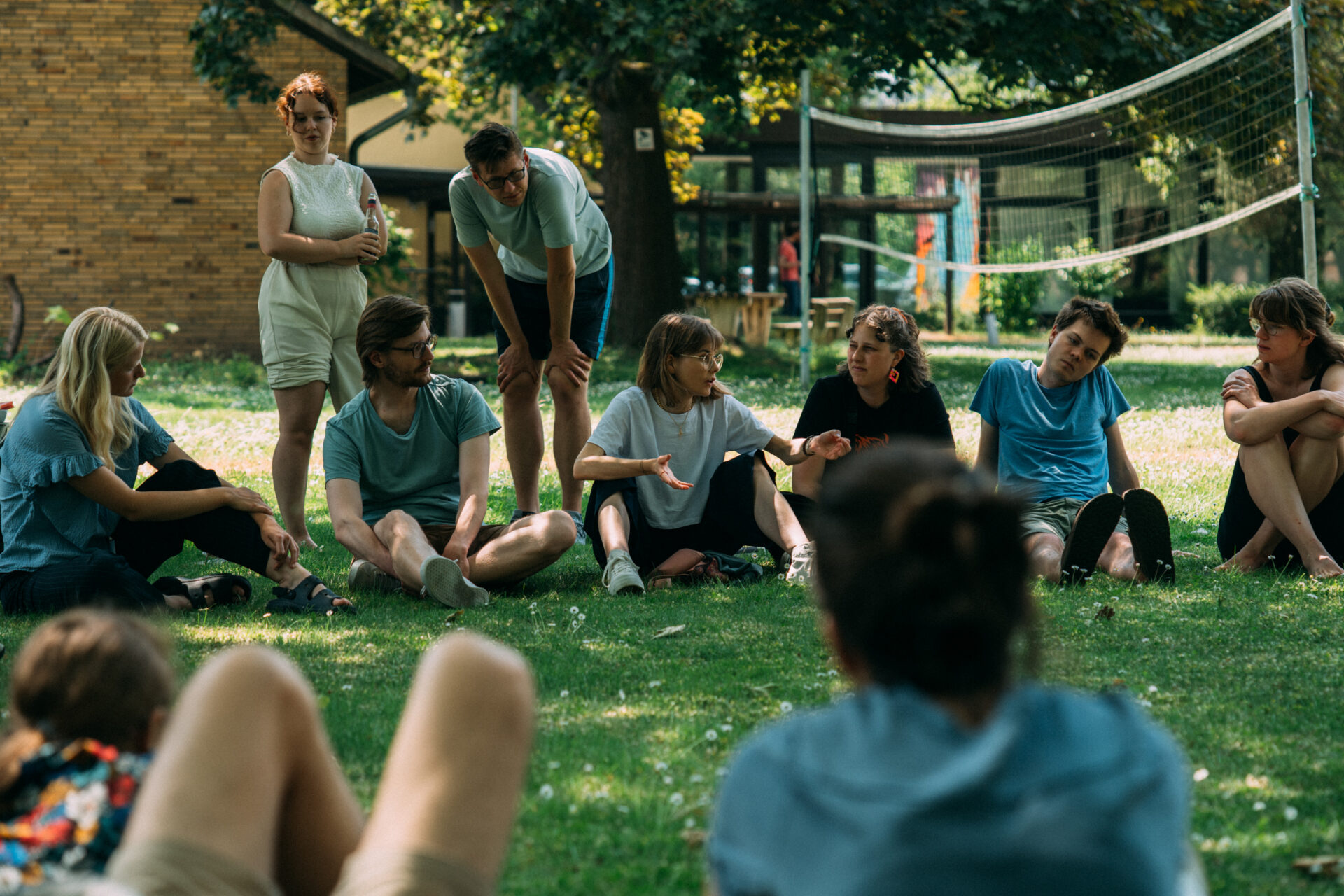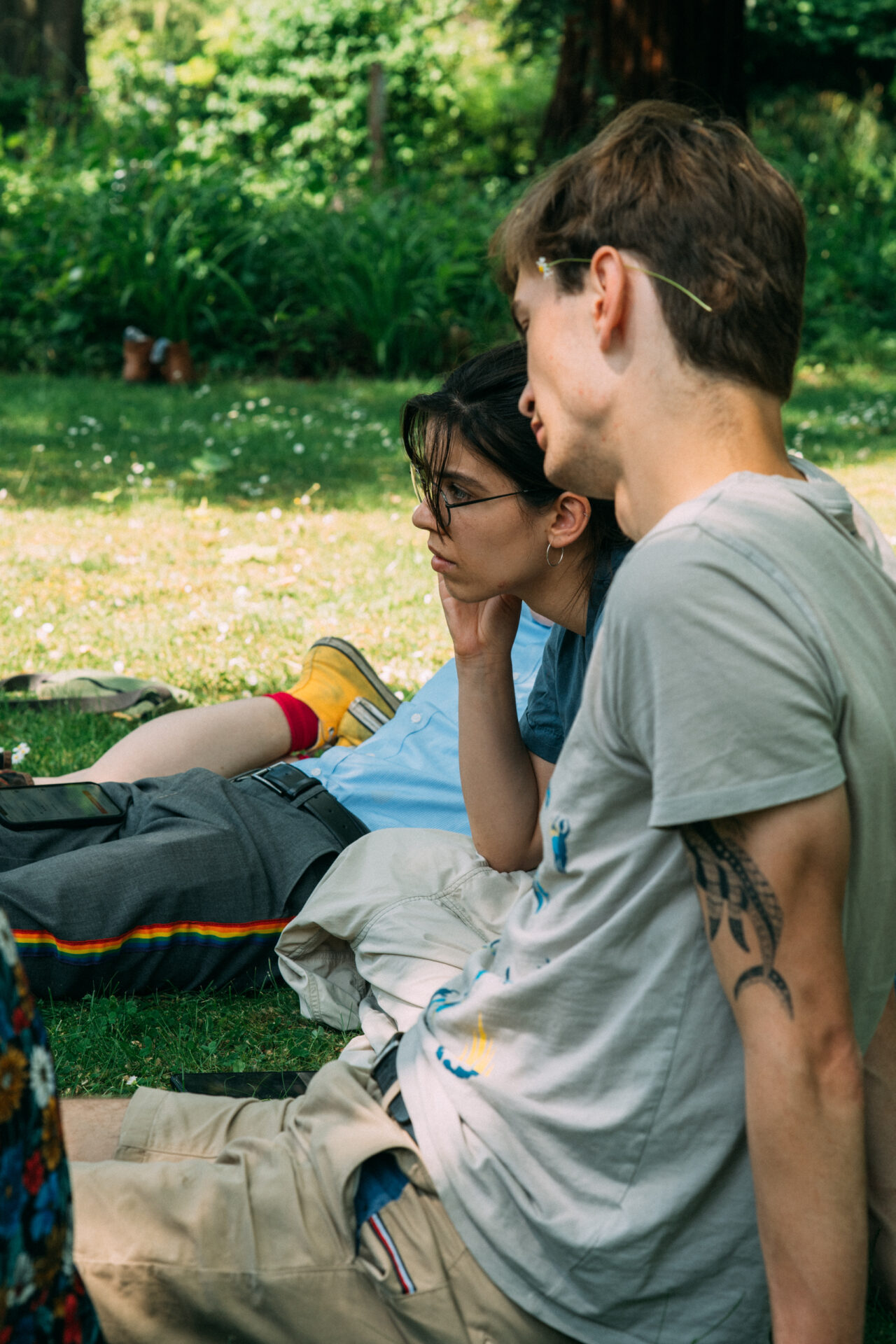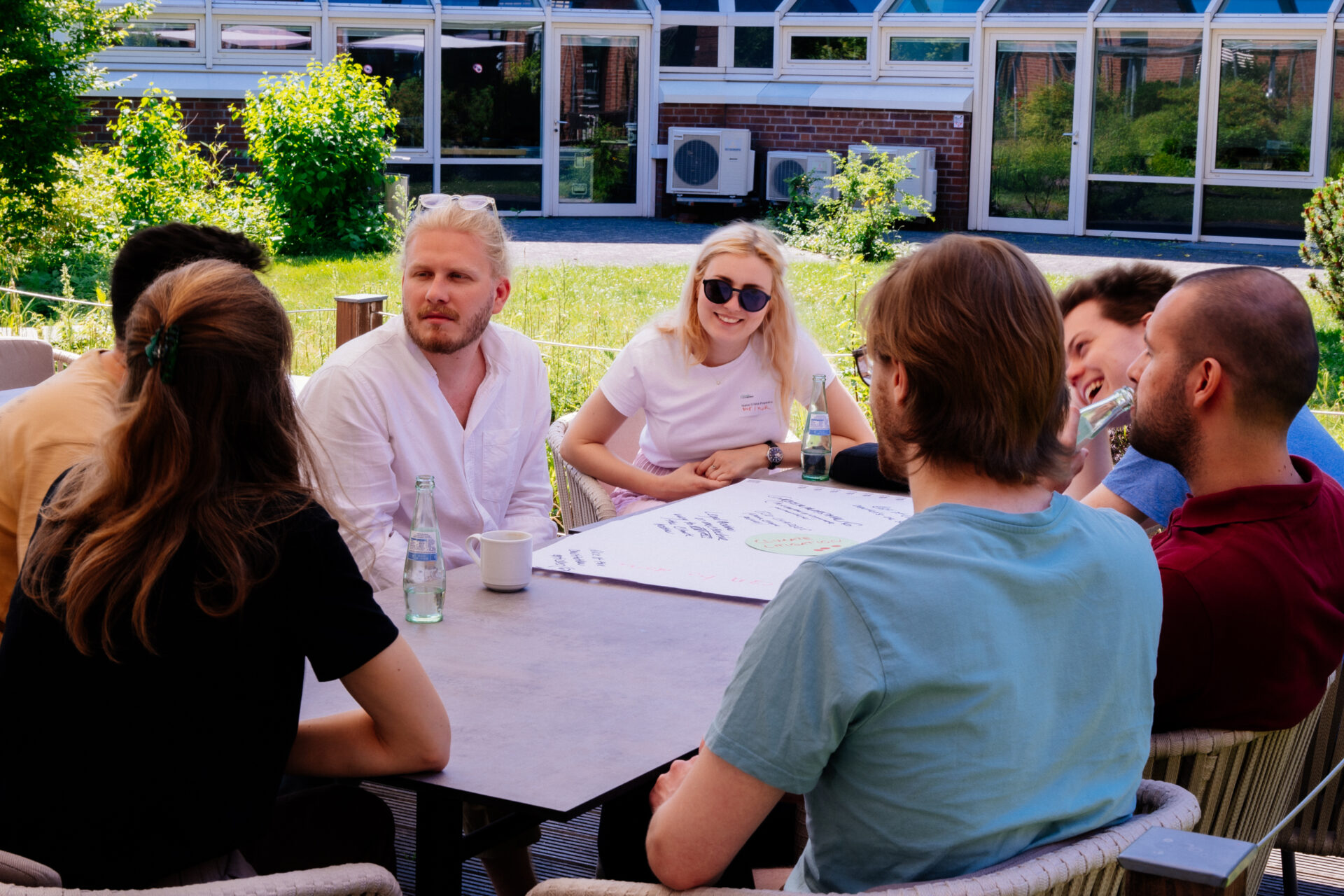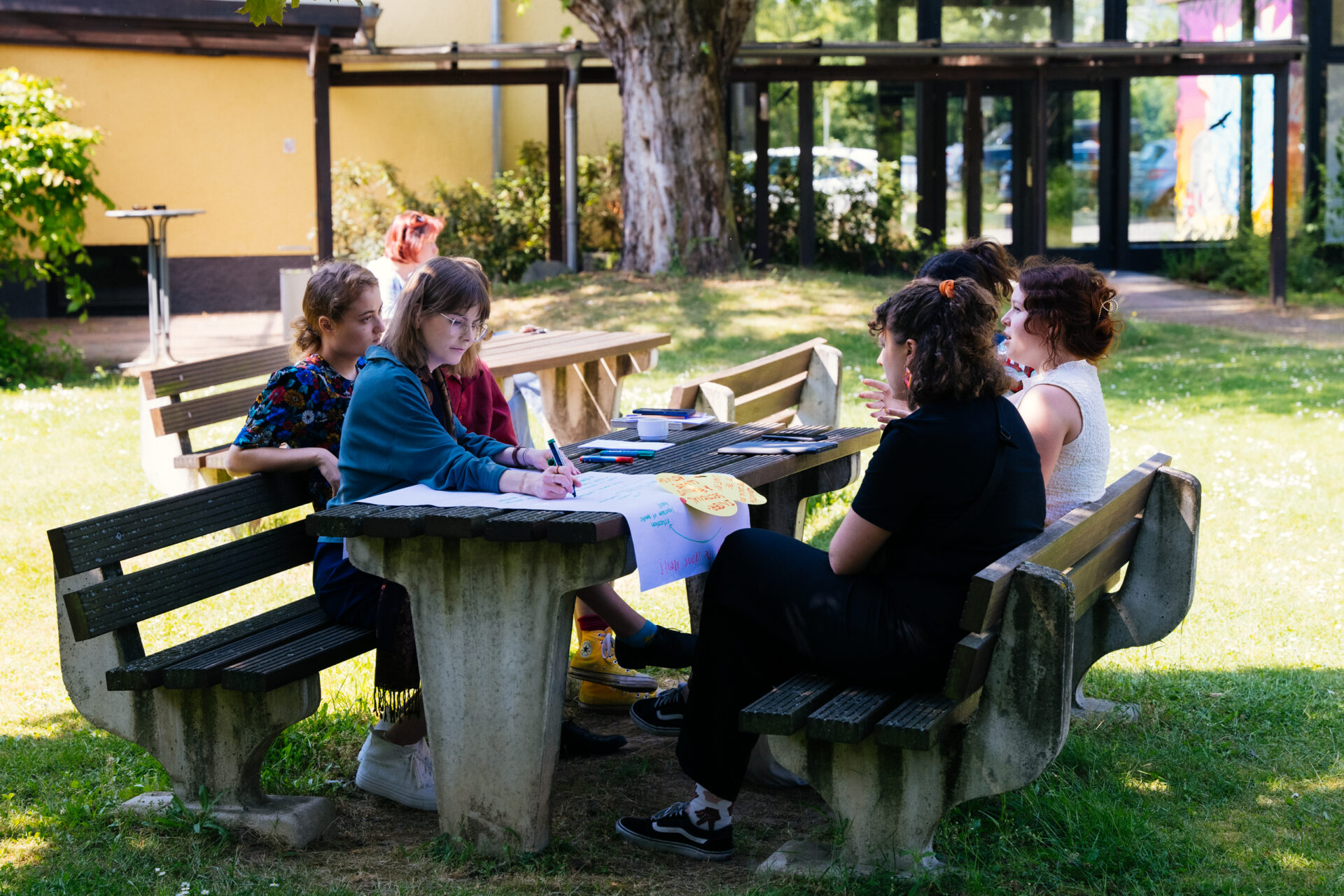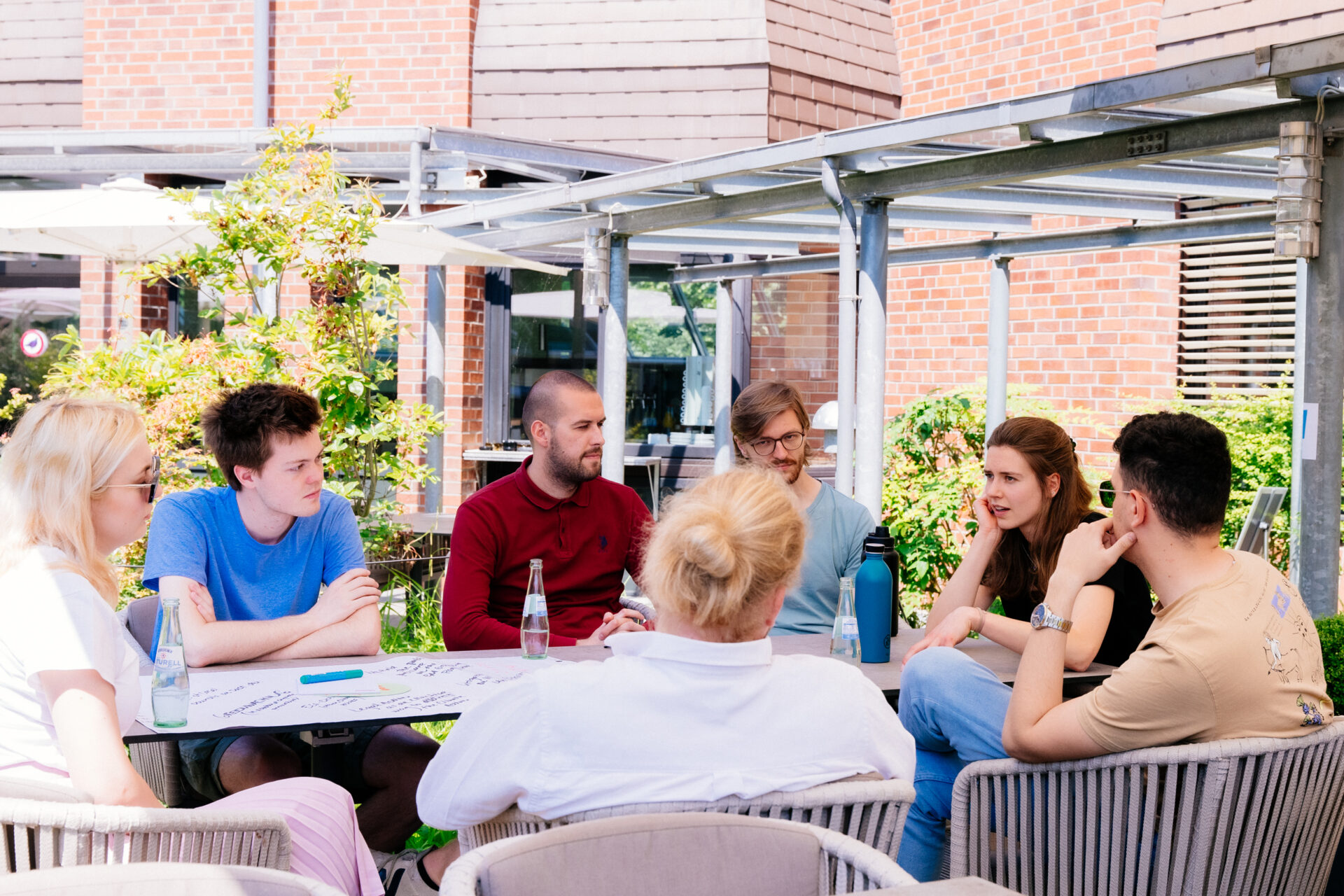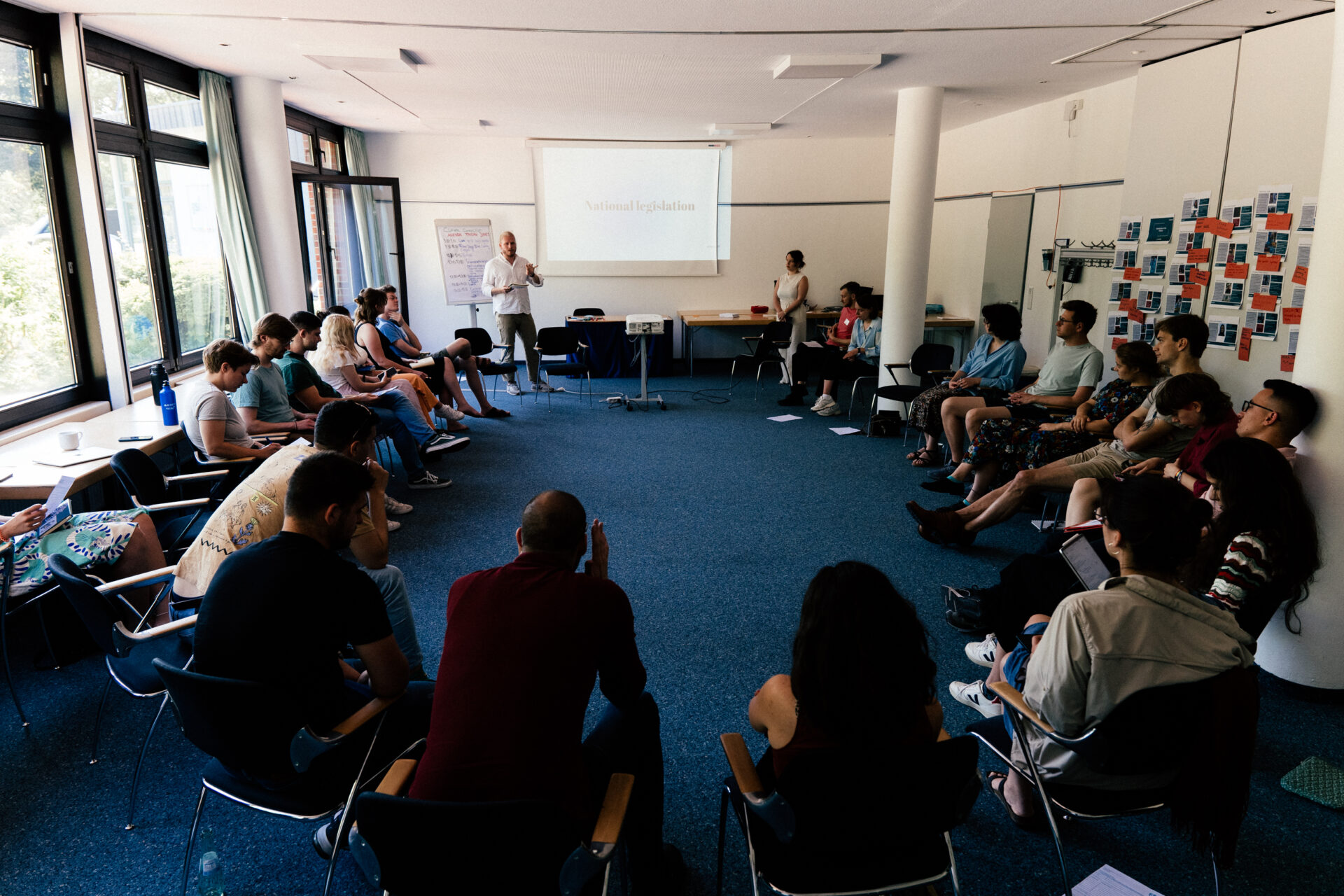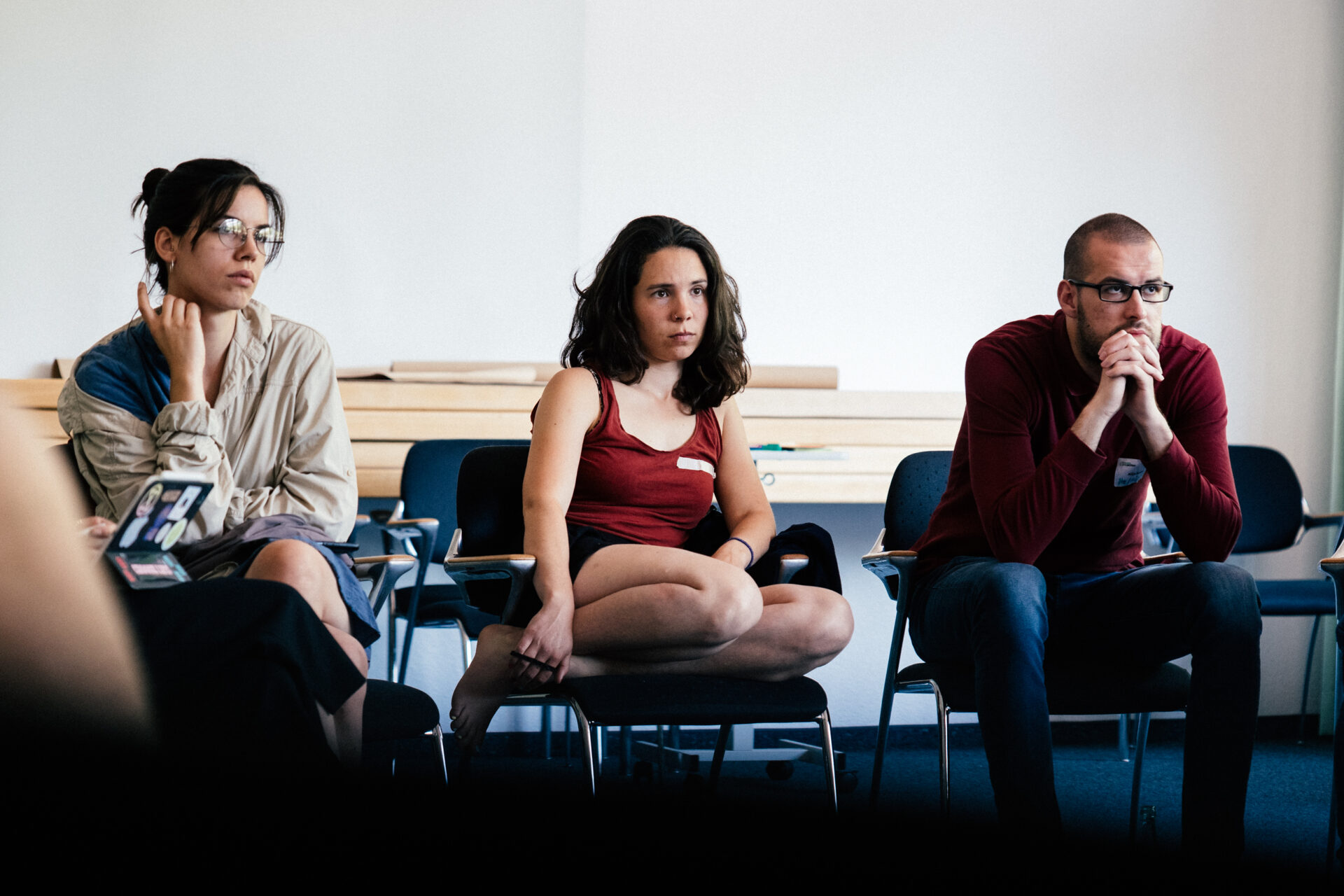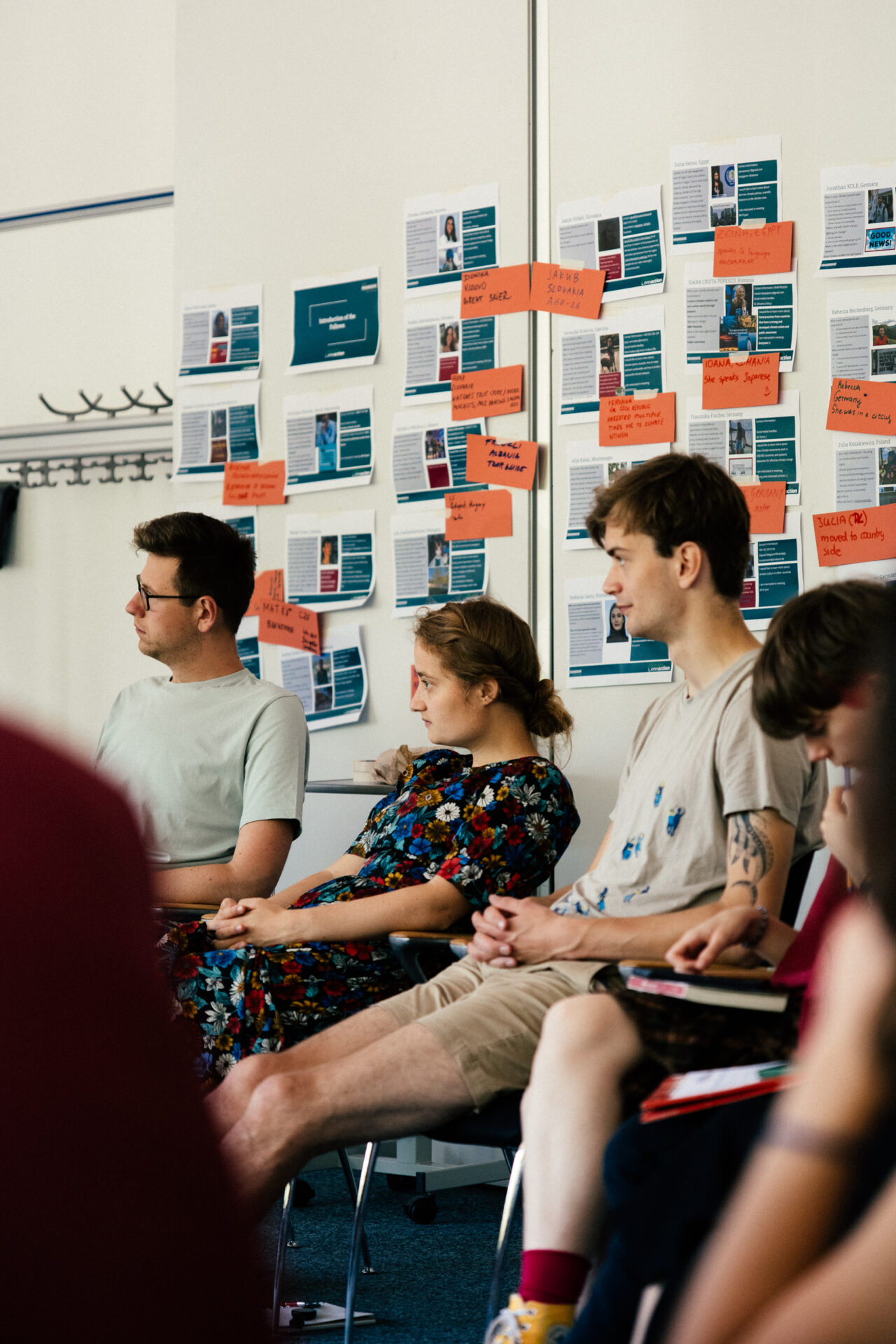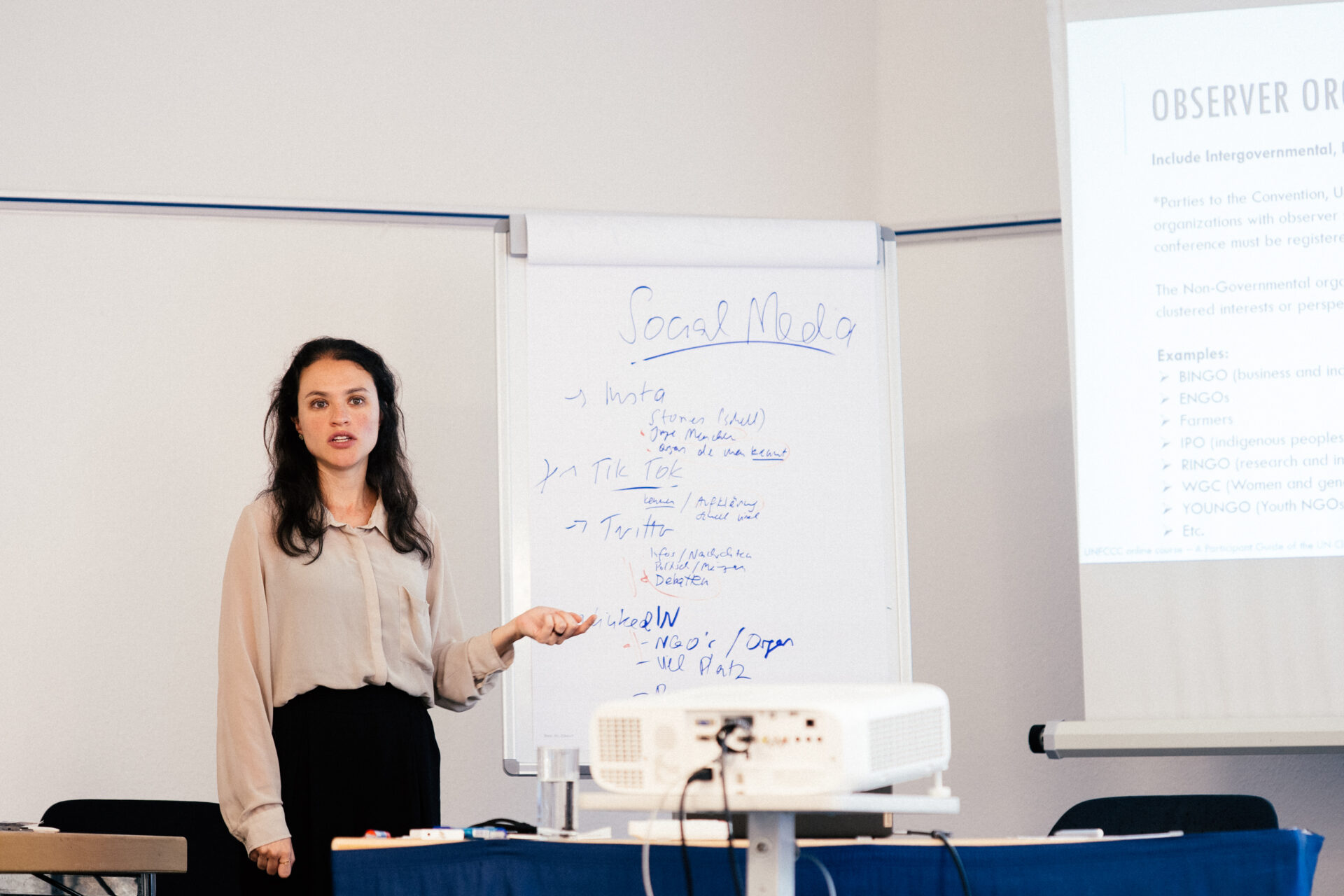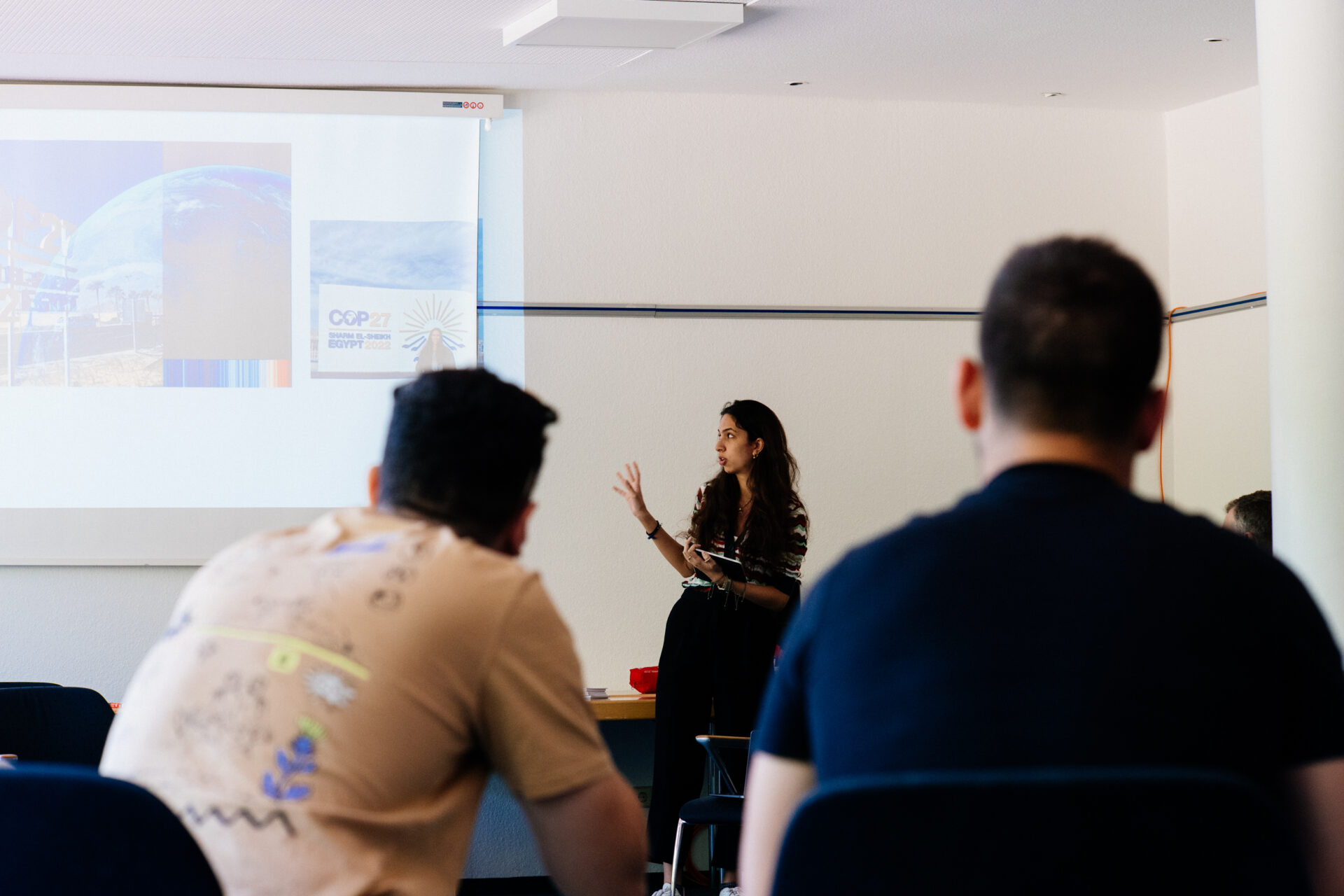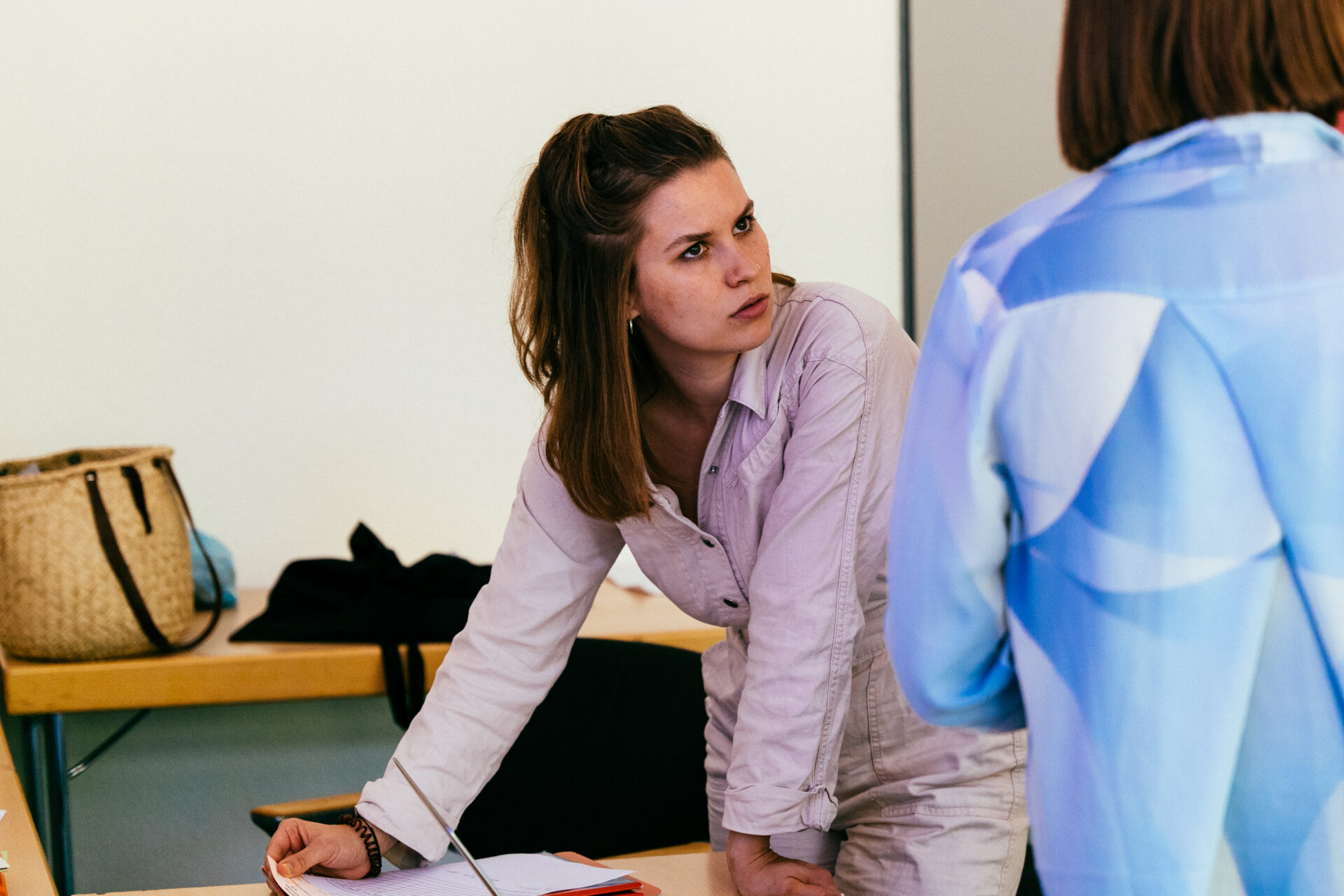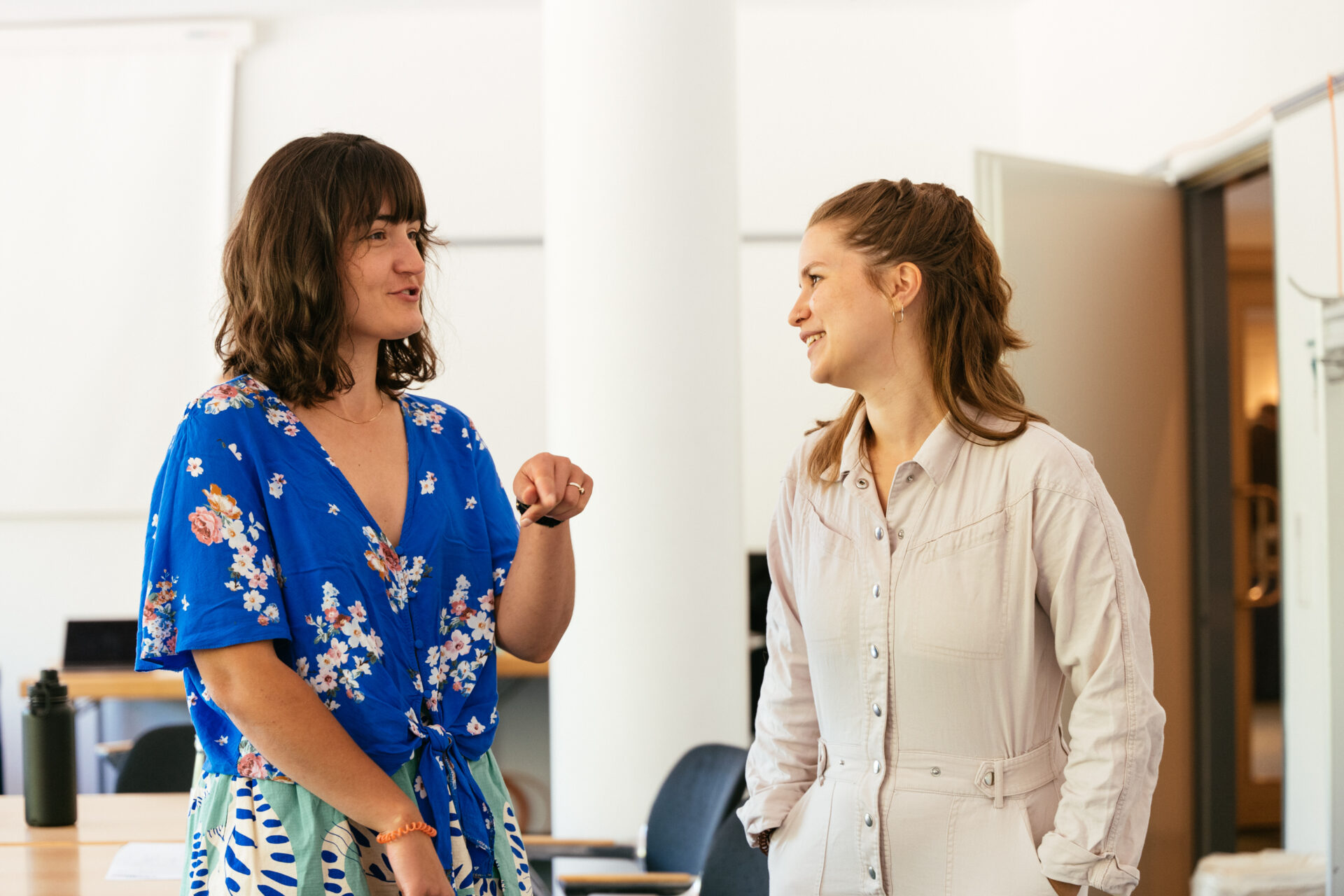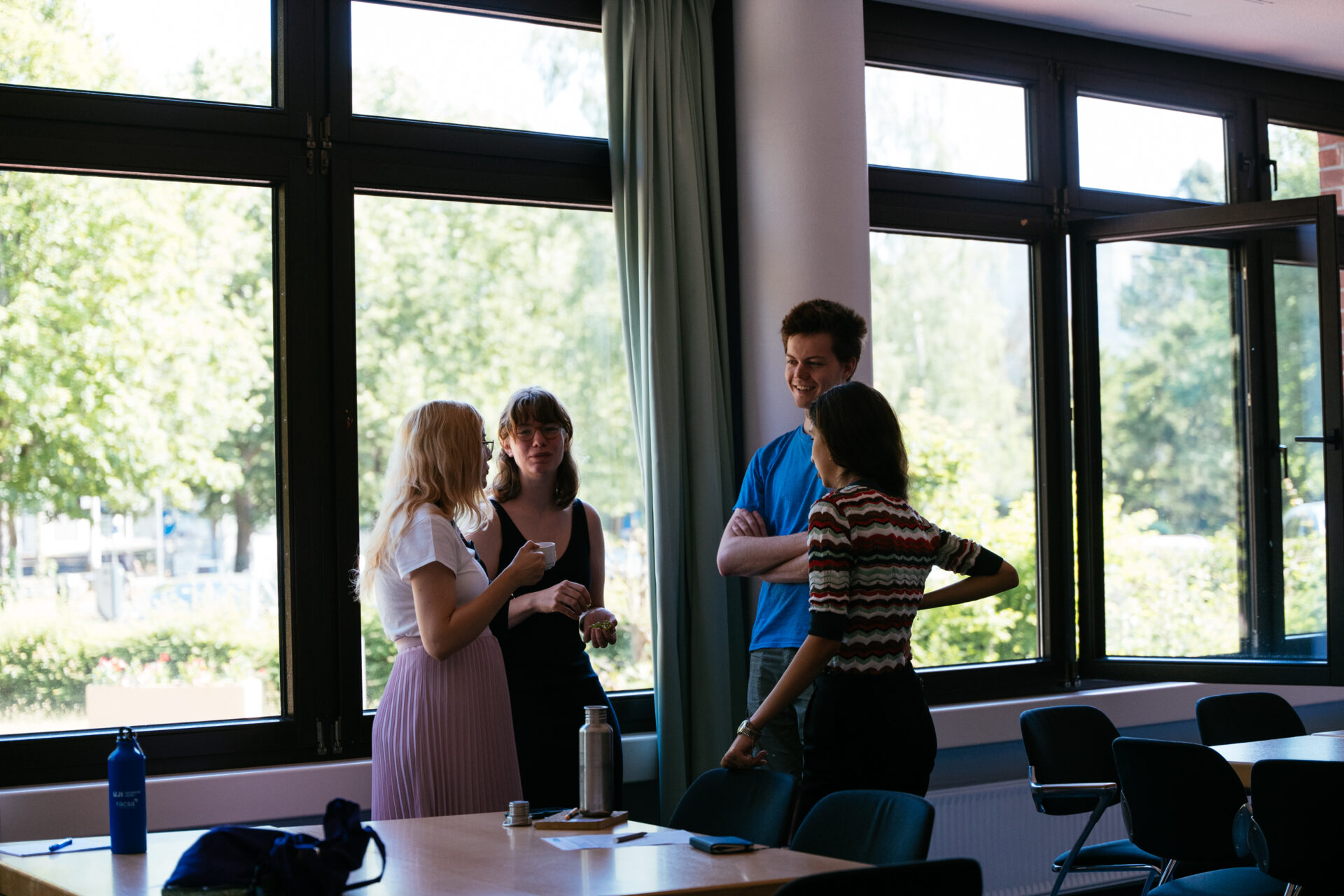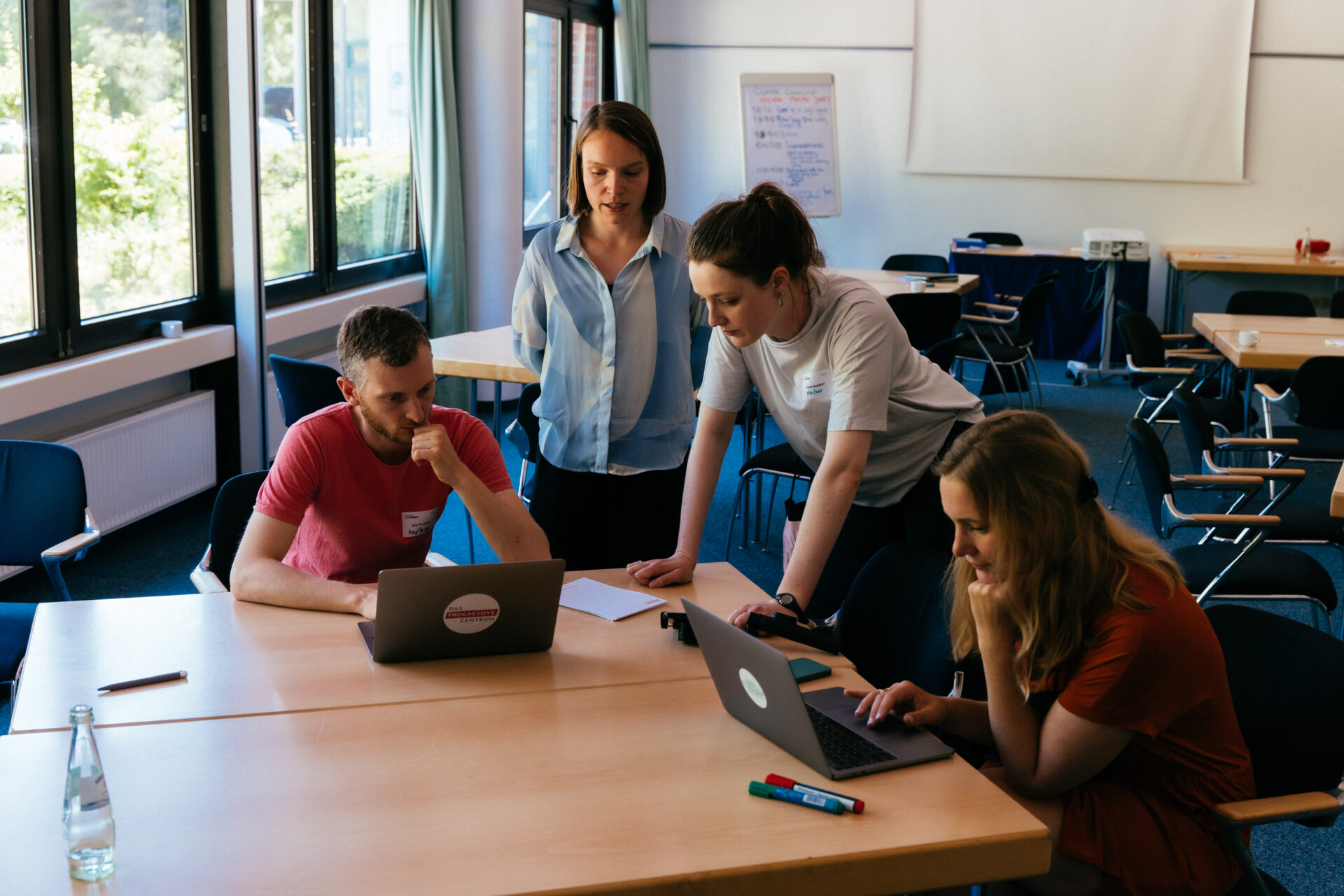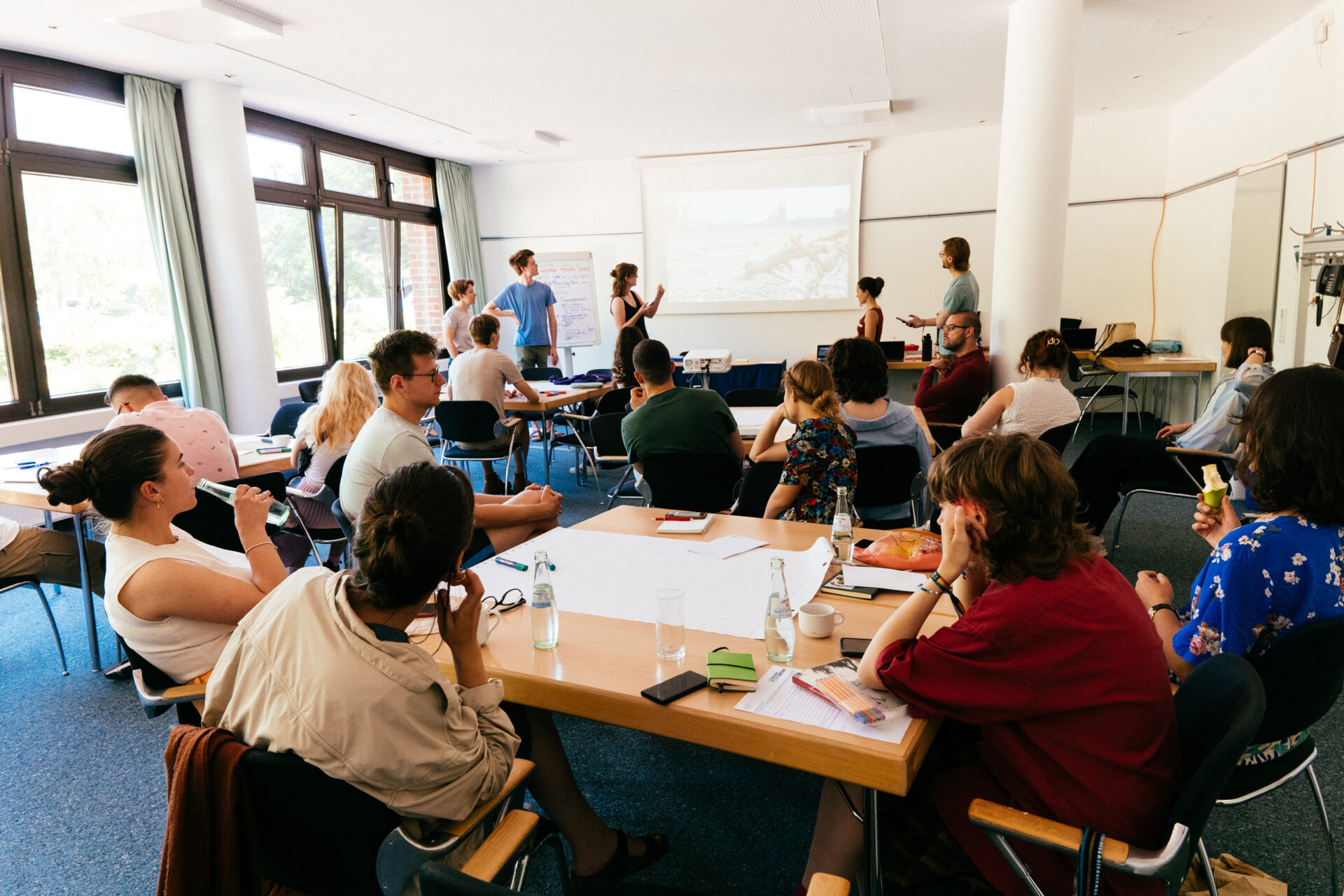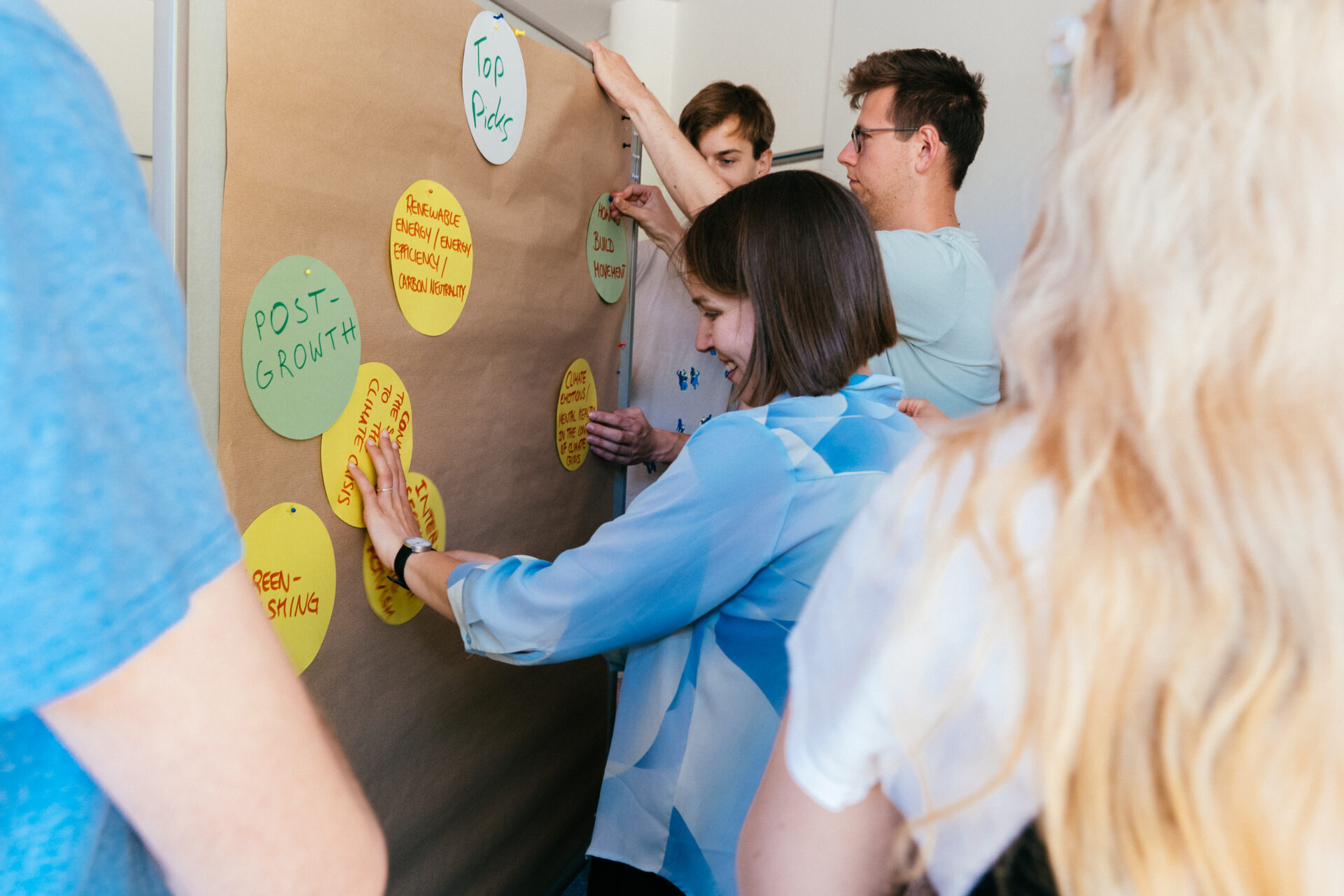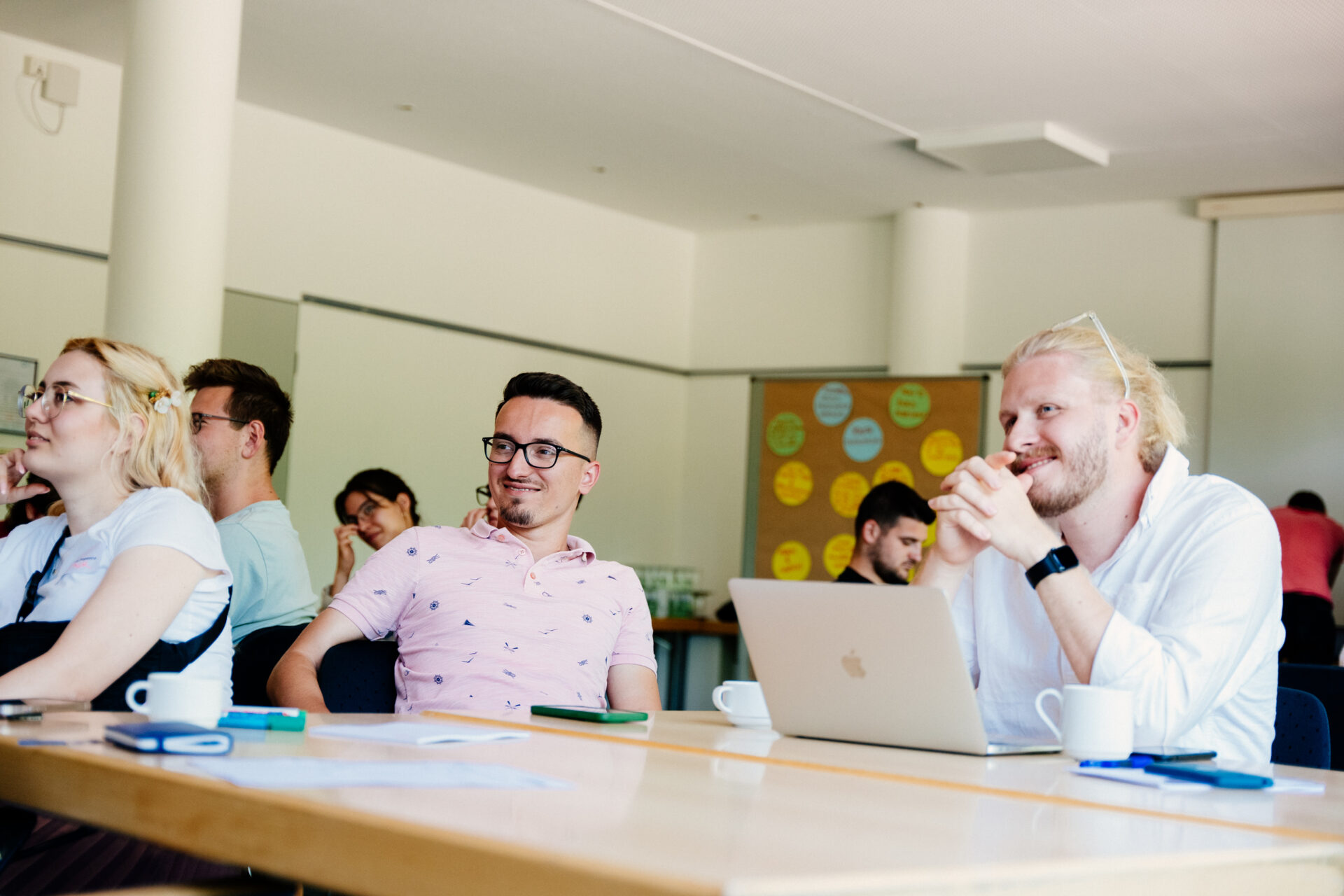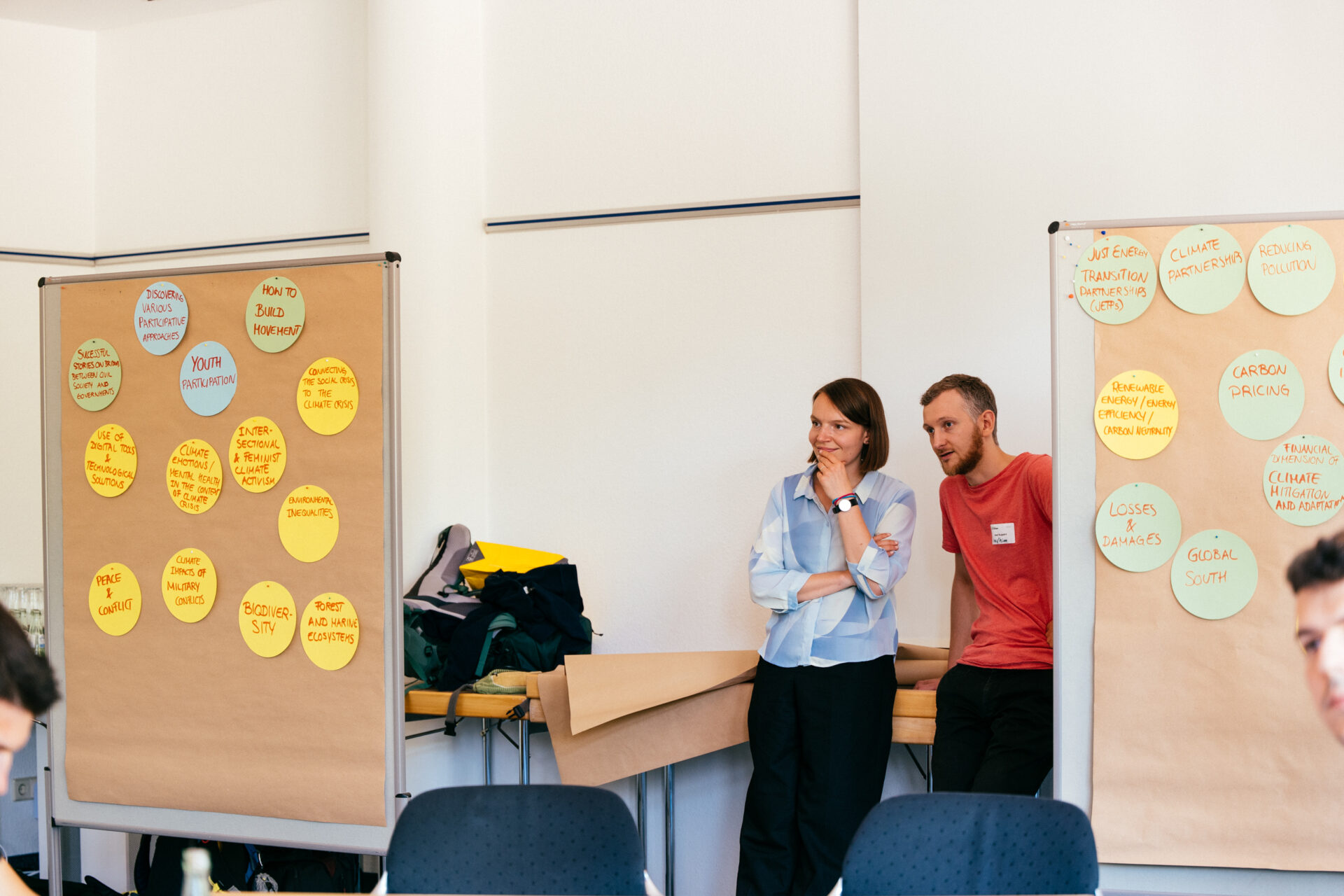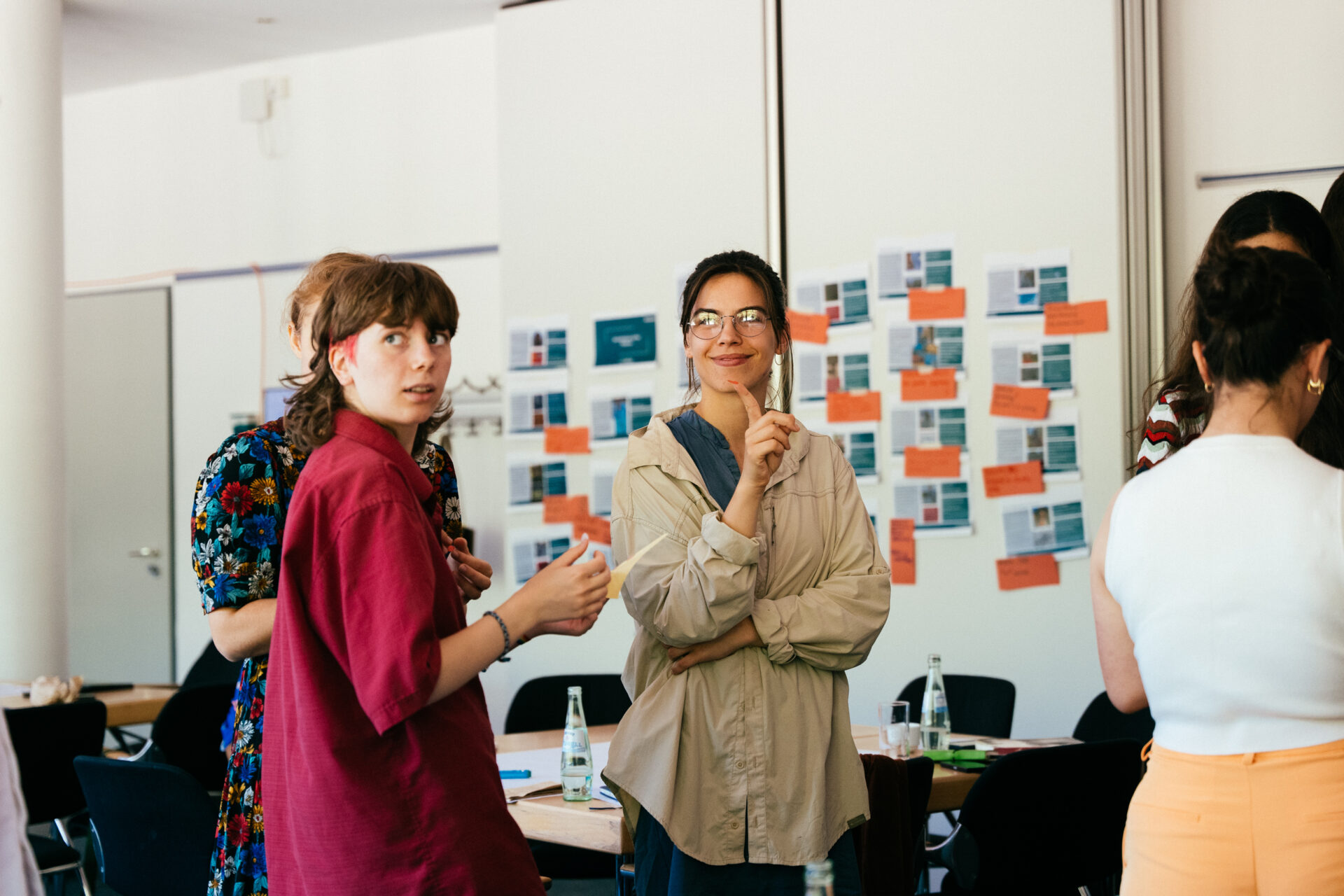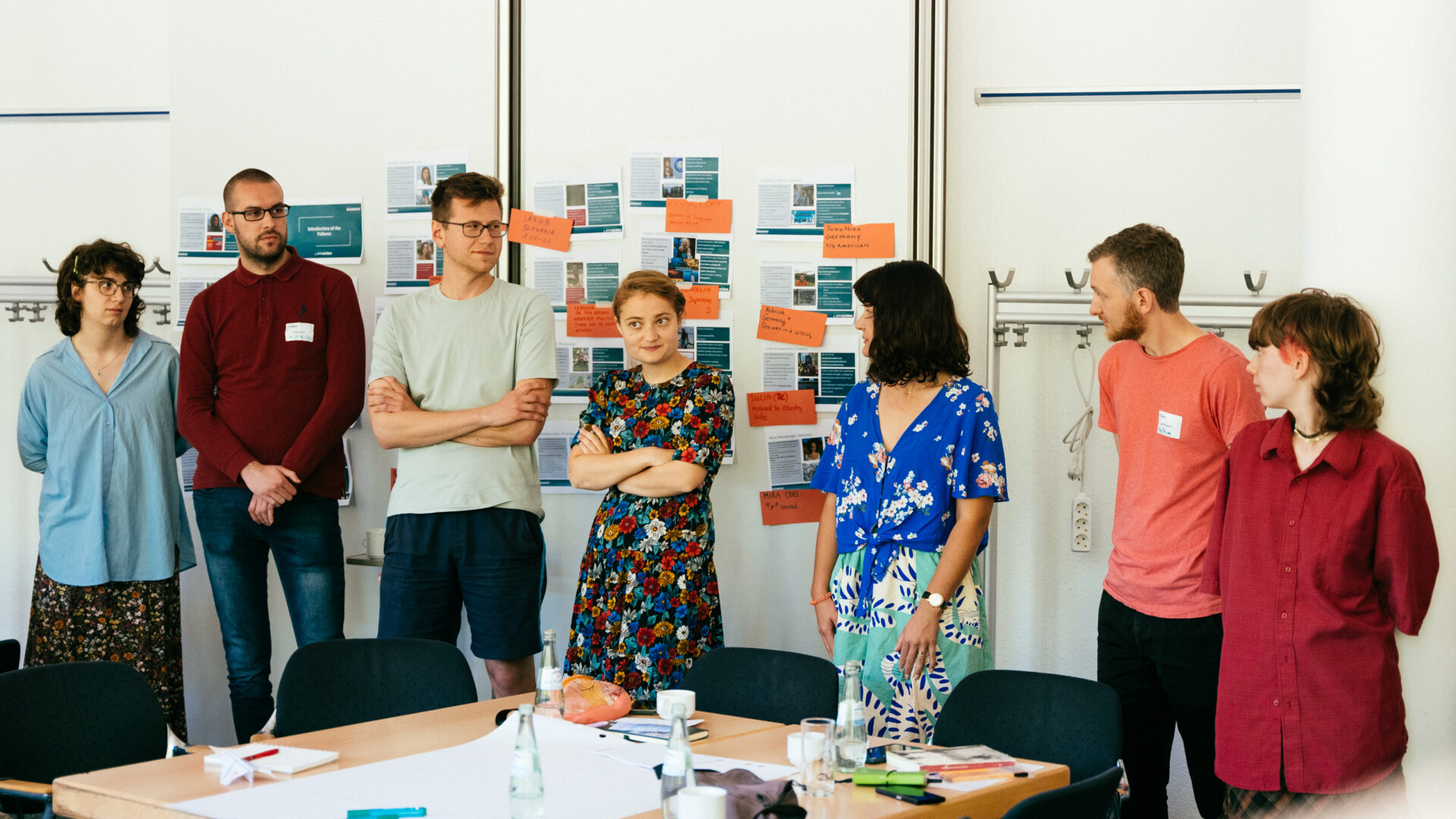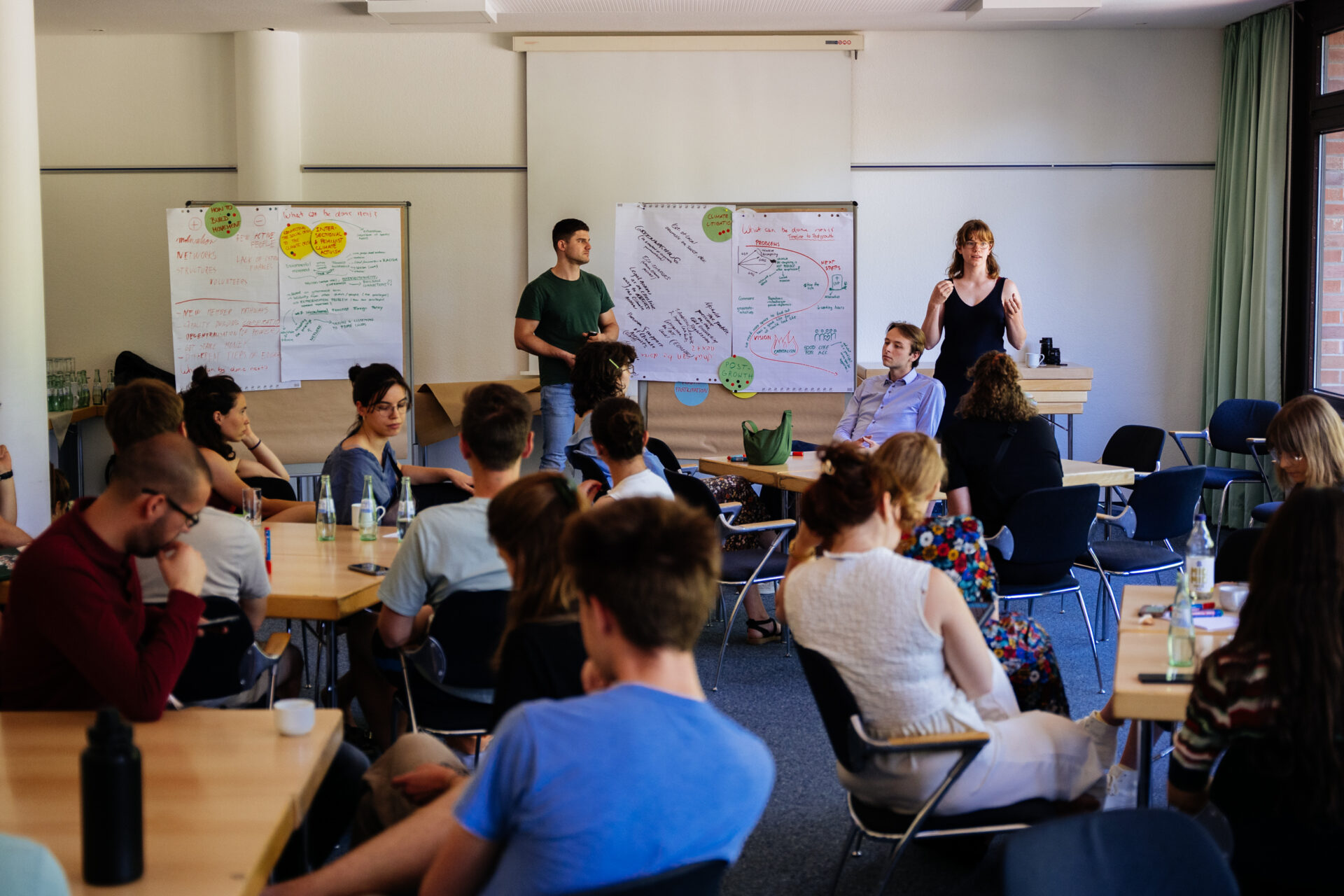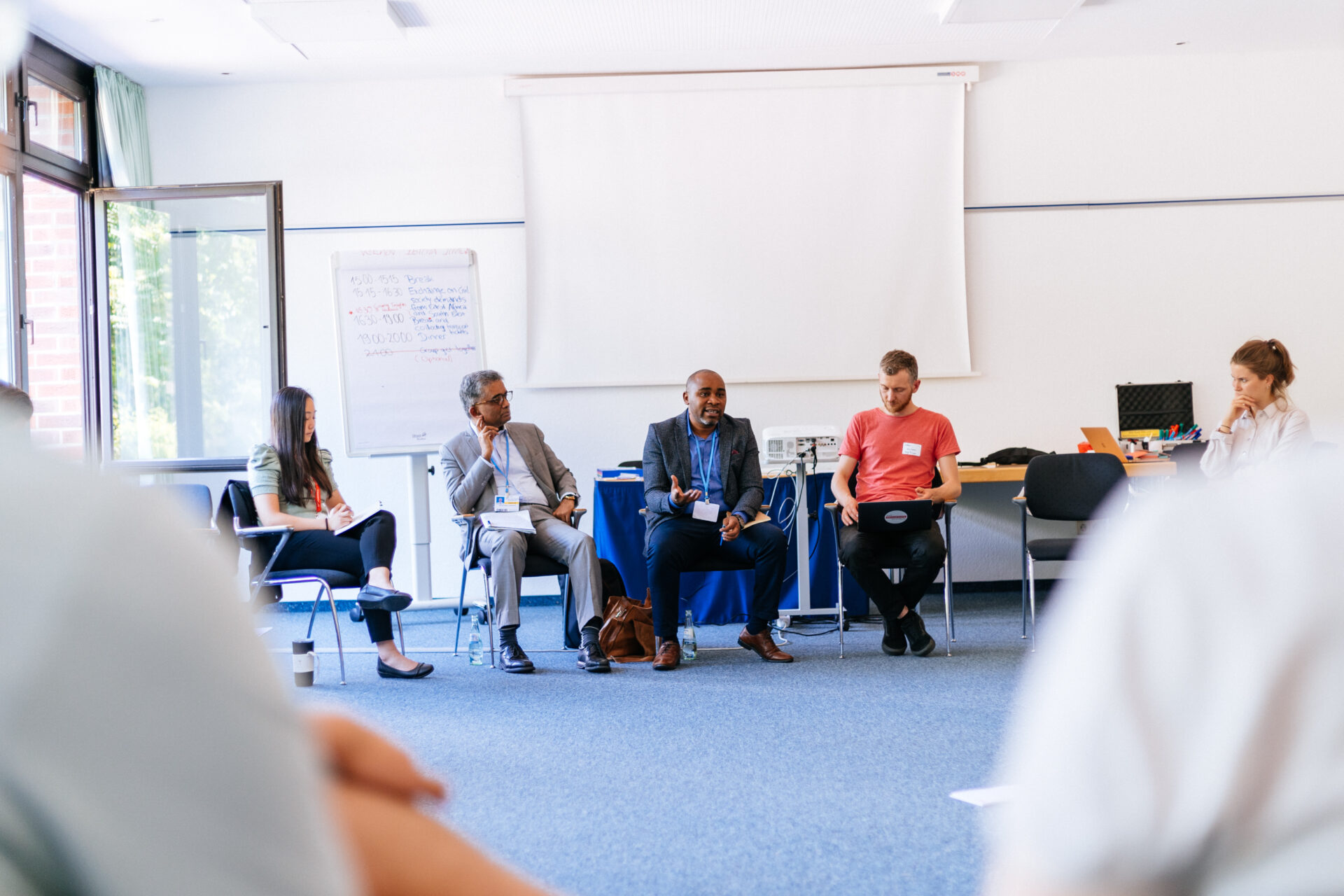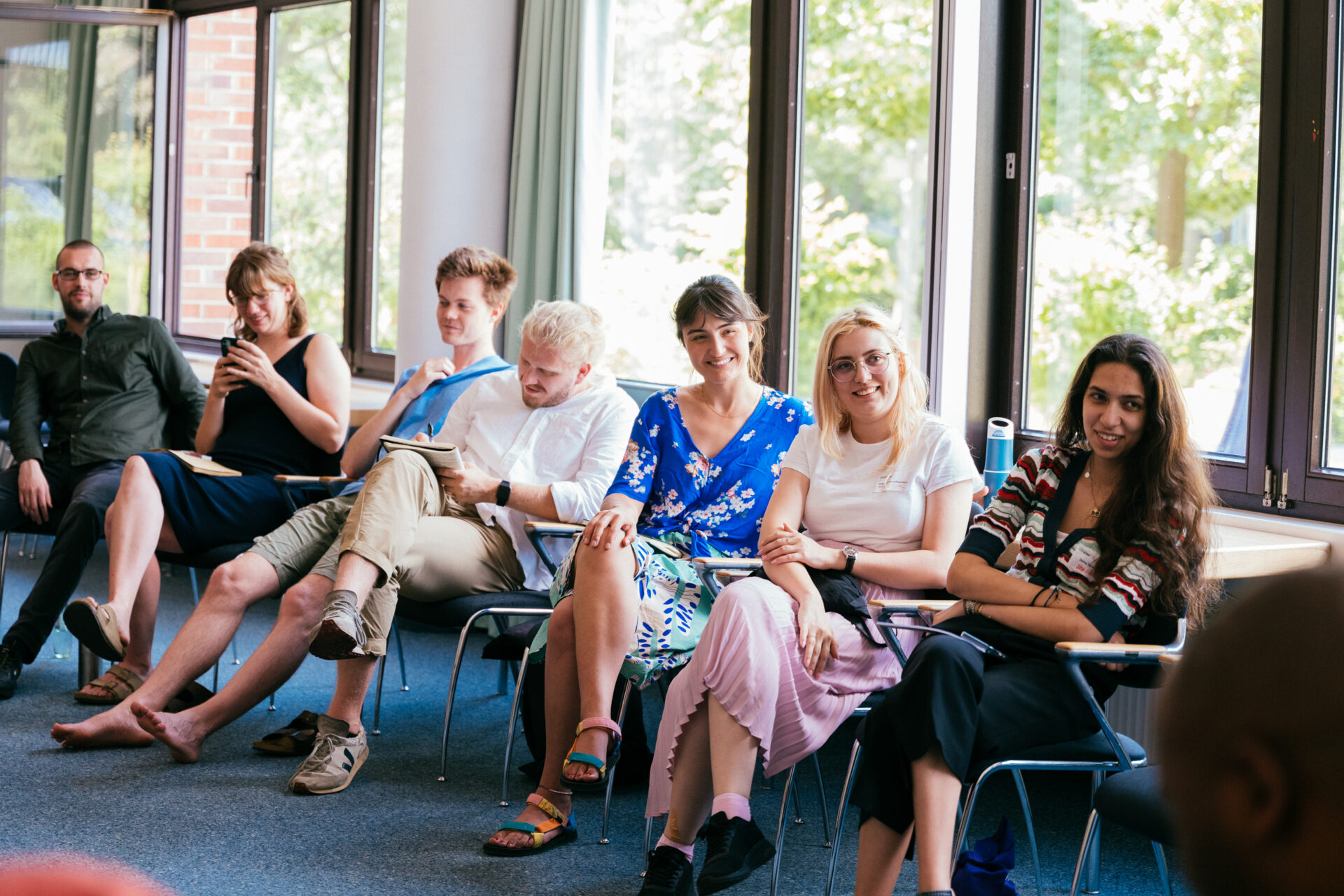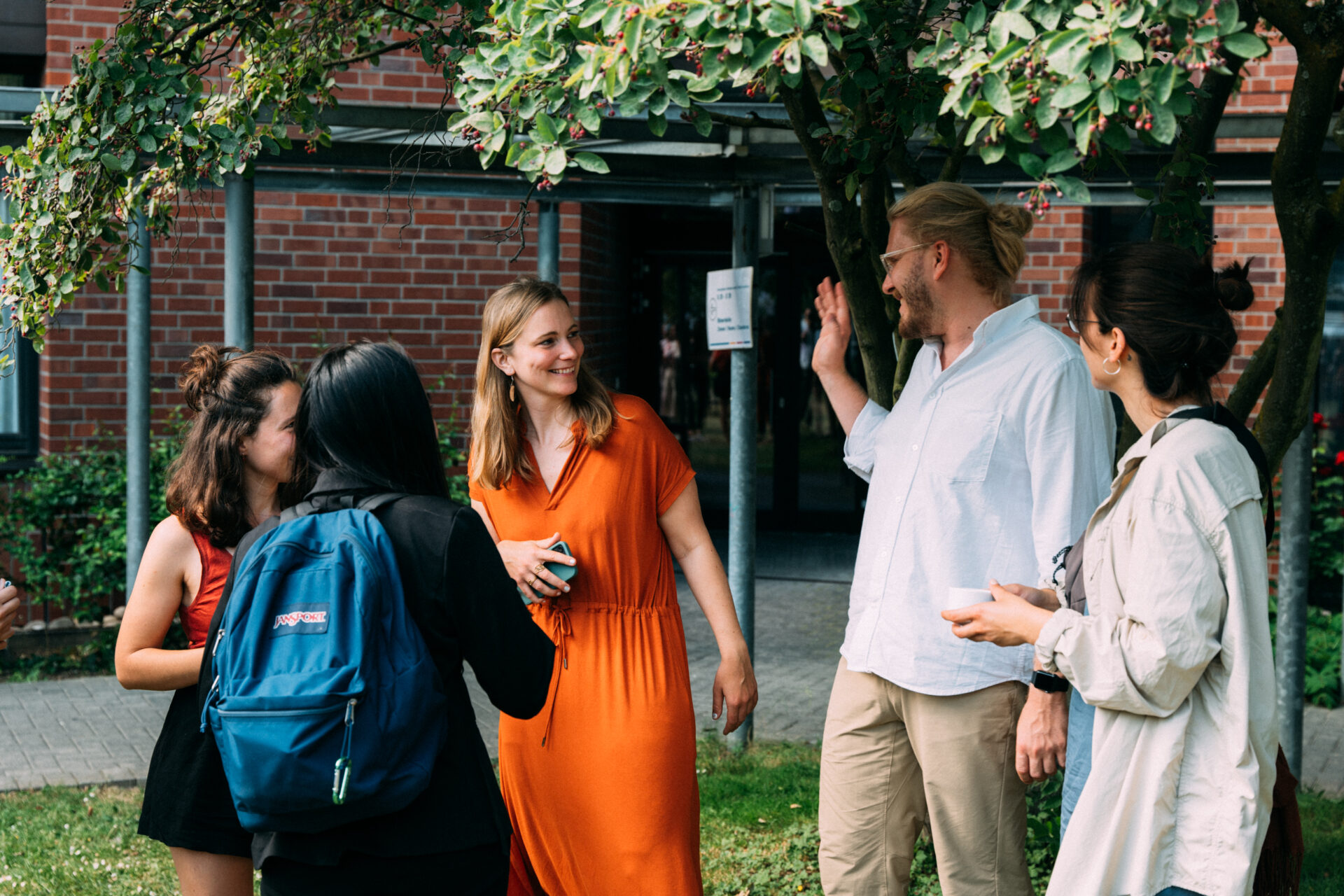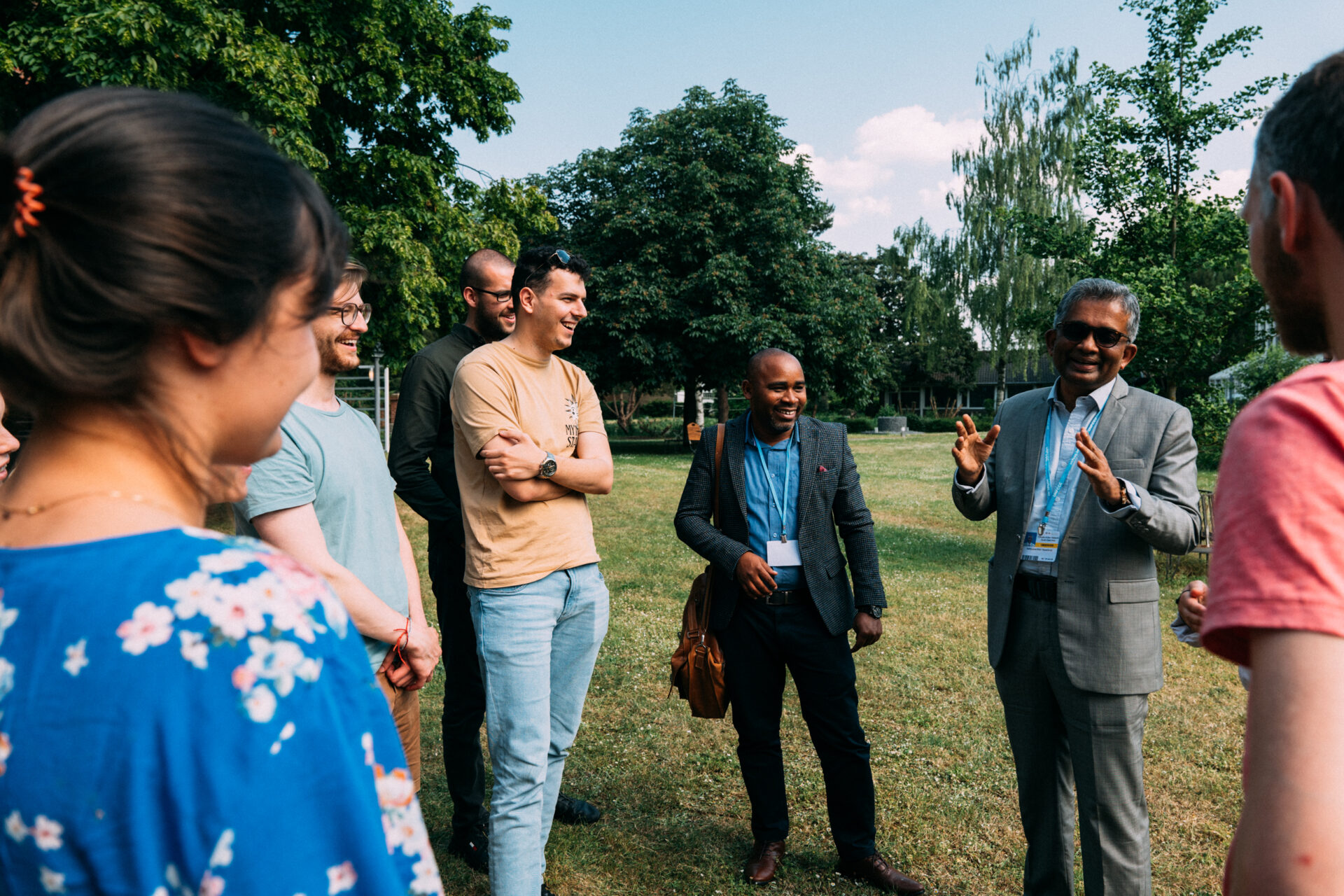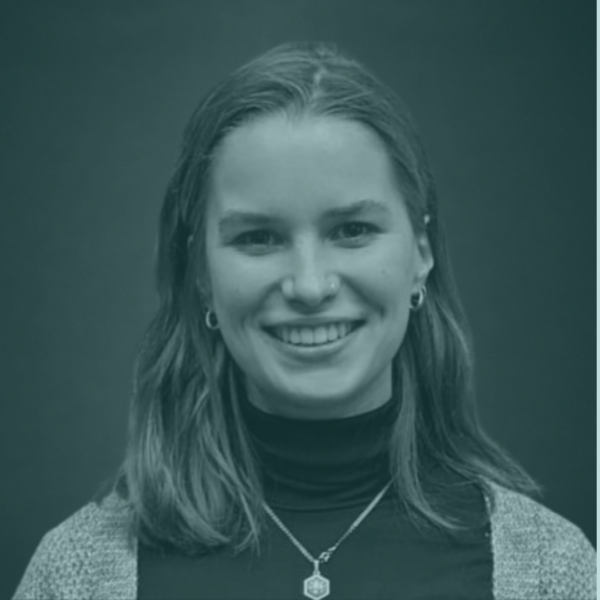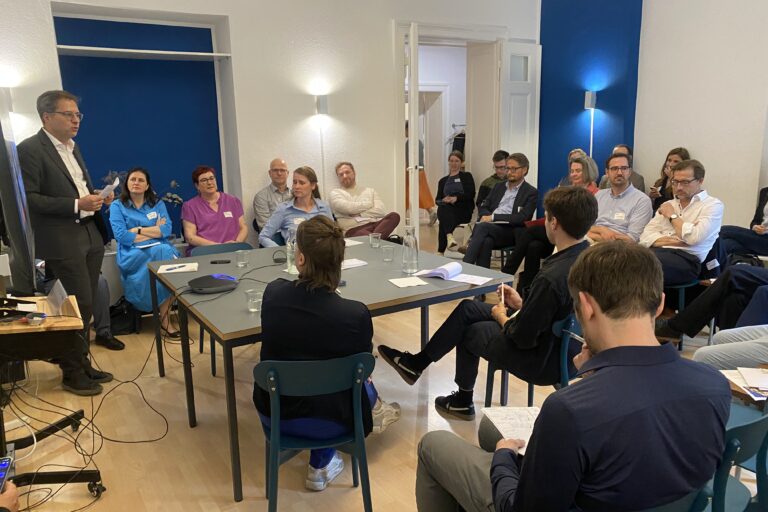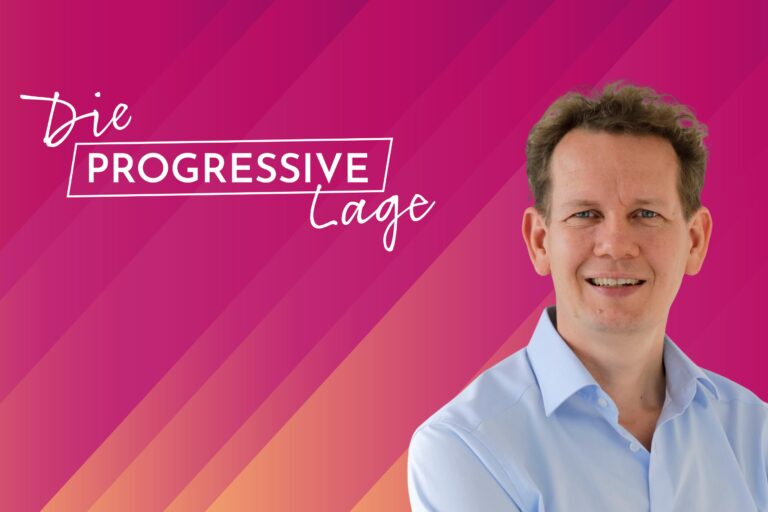The Fellows had the opportunity to learn more about youth participation and civil society demands at the Climate Change Conference at meetings, training workshops and exchanges with international youth delegates, gaining valuable background information and giving us exciting background information and insights into the international climate negotiations.
In order to get to know each other better as a group, this trip offered space for an initial in-depth exchange on the climate-related work of the Fellows, for transnational exchange among each other and with the Youth Working Group on Climate Policy (AG Jugend- und Klimaaußenpolitik), as the second group of the project, as well as for learning more about the different country contexts in which the Fellows are acting in regard to climate, environmental and political matters.
Next to exchanging views with the Programme Director of Deutsche Welle Europa, Adelheid Feilcke, on collaborating with international media agencies, the participants had the opportunity to engage in a discussion with Bonn’s Mayor Katja Dörner on the importance of cities in international climate policy and their role and needs in tackling the climate crisis.
We were very grateful for so many valuable exchnagesand being able to participate in these events (among others) talking about :
▶ The role of cities in tackling the climate crisis – the case of Bonn with Katja Dörner, Mayor of the City of Bonn
▶ Exchange on civil society demands from East Africa and South East Asia with Robert Muthami (Programme Coordinator at Friedrich-Ebert-Foundation Kenia), Nithi Nesadurai (Director and Regional Coordinator at Climate Action Network Southeast Asia) & Kate Yeo (Youth Representative at UNFCCC and activist from Singapore)
▶ Youth participation in UN processes and exchange of experiences with Axel Eriksson & Lise Coermann Nygaard (UN Youth Delegates in the UNFCCC from Sweden and Denmark)
▶ Youth Adaption Forum High-Level Closing Ceremony and Intergenerational Dialogue on Youth Engagement with National Adaptation Plans organised by
▶ Media work and public communication in the climate crisis with Adelheid Feilcke (Deutsche Welle Europe)
Pictures
